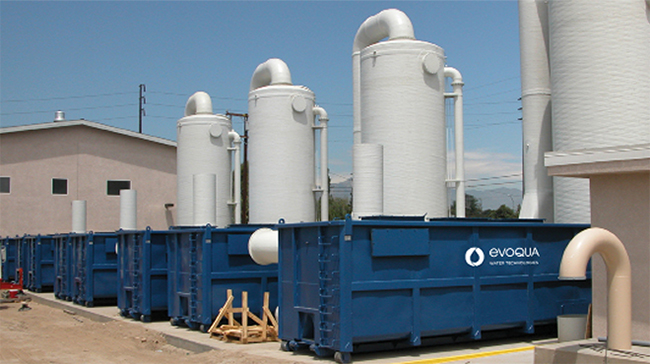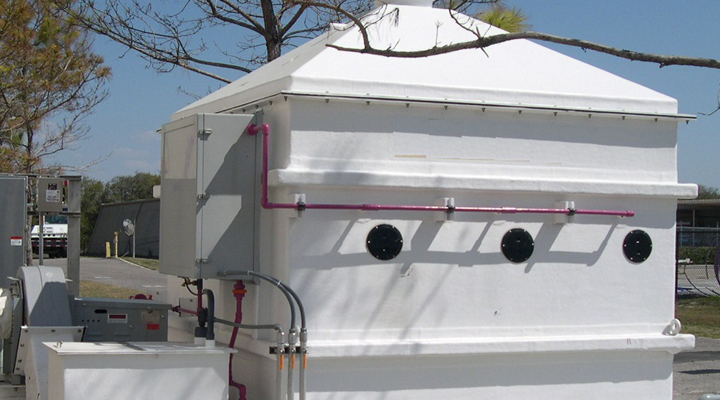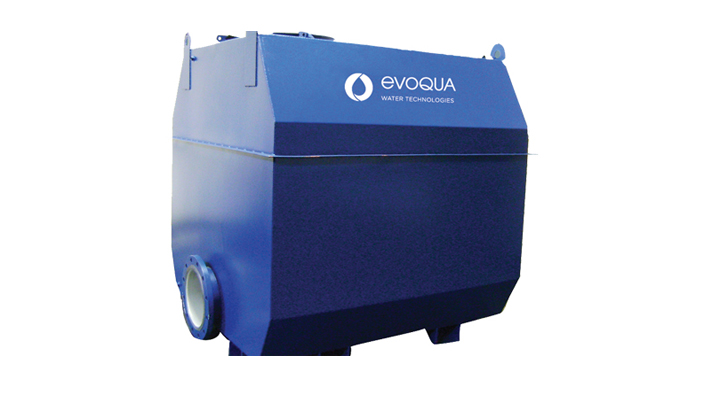The oil, gas and chemical industries all use aboveground storage tanks (ASTs), underground storage tanks (USTs), maritime tankers, rail tanks and other containers that house potentially hazardous vapors. These tanks are even found on construction sites where storage tanks are used such as gas stations or industrial sites.
When these tanks are emptied, tank degassing is required before reuse to remove organic gases. The potentially toxic gas vapors are produced by the previously contained volatile organic compounds (VOCs). VOCs can consist of chemicals, solvents and/or petrochemicals. Vapors containing these compounds must be degassed properly to prevent harmful vapor from entering the atmosphere and causing health concerns and compliance issues.
Evoqua provides tank degassing and vapor control services to meet industry environmental compliance goals. Compliance is accomplished through a variety of mobile treatment options including thermal/catalytic oxidation, internal combustion engine systems (ICE), carbon adsorption systems (CAS), and specialty scrubber solutions for the treatment of volatile organic compounds (VOCs) or hydrogen sulfide (H2S).
If degassing is not properly conducted, the harmful vapor can be expelled into the atmosphere and create health and compliance issues.

Our Solutions for Vapor Control
Our mobile technology can be applied to tank or pipeline degassing, centrifuge vapor control, turnaround-related unit or vessel de-inventorying, flare augmentation, vacuum truck exhaust treatment, marine loading vapor control, railcar vapor control, or various odor control challenges. Evoqua’s diverse product line can handle small as well as large scale projects.
Internal Combustion Engines (ICE)
Our ICE degassing systems have a burn rate up to 2.0 mm BTU/hr and flow rates up to 240 CFM and can burn 100% of LEL. This allows for a higher rate of vapor destruction and since the ICE does not require the amount of dilution air that an oxidizer would, there is less propane use and less CO2 emissions.
Thermal Oxidation (TO)
Evoqua’s mobile thermal oxidizer systems can handle burn rates ranging from 3.0 mm BTU/hr to 50.0 mmBTU/hr and flow rates ranging from 300 to 3000 CFM. Our inventory includes various-sized TO’s so we can bring the right unit for specific project characteristics, depending on vapor source size, concentration, and facility footprint.
Liquid Scrubbers
Sized to your site needs, mobile vapor scrubbing systems assist customers with odor and air compliance. Our scrubber systems are equipped with flame arrestors, secondary containment, pressure gauges, sample ports, and temperature gauges and are suitable for use in refineries, chemical plants, and tank terminals. Built of all stainless-steel construction, the liquid scrubber tank can be used with acids, bases, diesel, and a variety of other scrubbing chemicals and can handle flow rates up to 1000 CFM. The systems are trailer mounted and provide easy placement at any job site.
Additional Equipment
When project conditions warrant use of alternative technologies, Evoqua’s engineers are available to discuss options such as catalytic TOs, recuperative TOs, and recuperative catalytic TOs. The actual technology utilized is determined by the customer depending on the specific needs of each job.
Safety & Compliance
With a focus on safety, our storage tank degassing equipment is outfitted with flame arrestors, fire suppression systems and automatic safety shutdowns and is suitable for use in refineries, chemical plants and tank terminals. The units operate under vacuum from the storage tank to the degassing system, to mitigate against a vapor leak causing additional safety concerns. When it comes to reporting, the equipment will correctly measure the flow during the degassing event and record the data in a data logger. This data is provided to our clients in a project report, including volumes treated, contaminants destroyed, and all other necessary data required by state regulations and site-specific permits.


